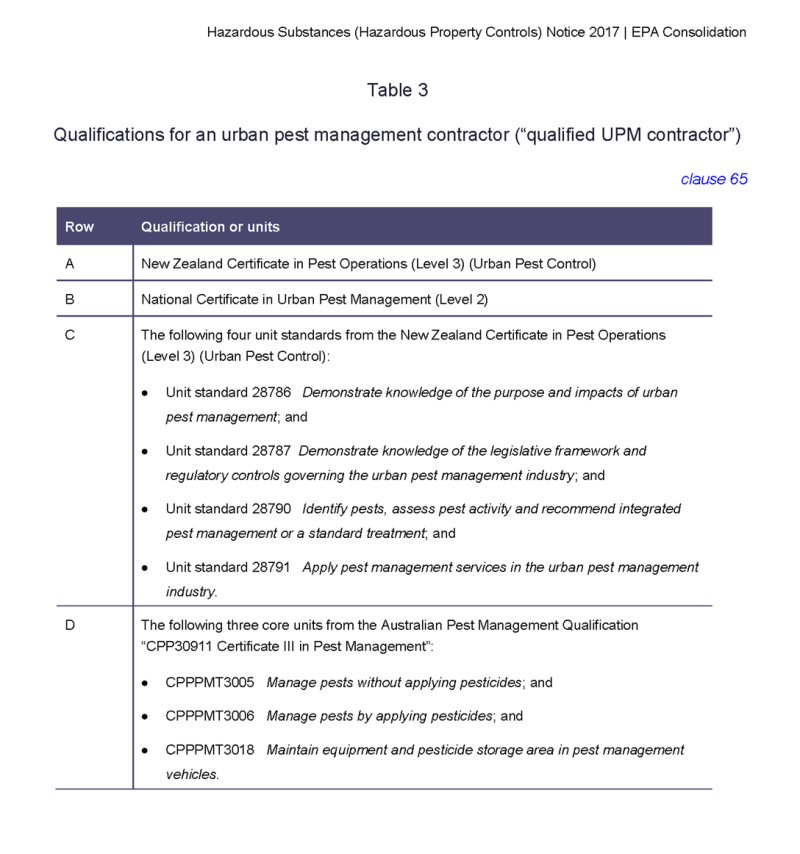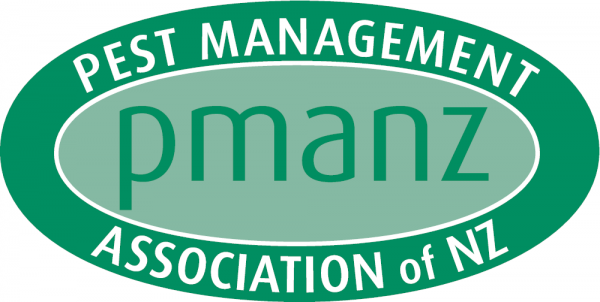About Us » UPM Qualifications
To register for the
New Zealand Certificate in Pest Operation (Level 3) (Urban Pest Control),
please contact CSL/Ascend Training to Register on:
Eden@cleaningsystems.co.nz
Or register here.
UPM Qualifications and Unit Standard requirements to provide Urban Pest Management Services in NZ
BACKGROUND:
In December 2017 new legislation was passed by WorkSafe and EPA detailing the the new requirements for handling of Class 6 (not normally used in Urban Pest Management (UPM) today) and Class 9 Urban Pest Management Pesticides. These are the mainstream pesticides used by most Urban Pest Managers.
The old Approved Handler Certificate has been retired.
It is replaced effective from 1 December 2017 by a two pieces of legislation.
1. For Class 6 Pesticides, under Health and Safety at Work (Hazardous Substances) Regulations 2017;
2. For Class 9 Pesticides under Hazardous Substances (Hazardous Property Controls) Notice 2017
CURRENT REQUREMENTS:
For Class 9 pesticides used in UPM (to see full EPA Notice follow link below):
Hazardous Substances (Hazardous Property Controls) Notice 2017
Clause 65 from the Notice says:
Qualifications for a contractor using substance in urban pest management
A contractor must not handle or apply the substance unless the contractor is a qualified UPM contractor.
A qualified UPM contractor must provide evidence of their qualifications upon request by an enforcement officer.
A qualified UPM contractor means a contractor who, with respect to Table 3 (below):
(a) holds the qualification specified in row A or B; or
(b) has been credited with all of the units or unit standards specified in row D
NOTE: Row C is no longer available.
NOTE: Clause 65 applies to--
(a) a class 9.1A, 9.2A, 9.3A, or 9.4A substance used in urban pest management (UPM) or
(b) a substance listed in Table 3 in Schedule 9 of the notice
In December 2017 new legislation was passed by WorkSafe and EPA detailing the the new requirements for handling of Class 6 (not normally used in Urban Pest Management (UPM) today) and Class 9 Urban Pest Management Pesticides. These are the mainstream pesticides used by most Urban Pest Managers.
The old Approved Handler Certificate has been retired.
It is replaced effective from 1 December 2017 by a two pieces of legislation.
1. For Class 6 Pesticides, under Health and Safety at Work (Hazardous Substances) Regulations 2017;
2. For Class 9 Pesticides under Hazardous Substances (Hazardous Property Controls) Notice 2017
CURRENT REQUREMENTS:
For Class 9 pesticides used in UPM (to see full EPA Notice follow link below):
Hazardous Substances (Hazardous Property Controls) Notice 2017
Clause 65 from the Notice says:
Qualifications for a contractor using substance in urban pest management
A contractor must not handle or apply the substance unless the contractor is a qualified UPM contractor.
A qualified UPM contractor must provide evidence of their qualifications upon request by an enforcement officer.
A qualified UPM contractor means a contractor who, with respect to Table 3 (below):
(a) holds the qualification specified in row A or B; or
(b) has been credited with all of the units or unit standards specified in row D
NOTE: Row C is no longer available.
NOTE: Clause 65 applies to--
(a) a class 9.1A, 9.2A, 9.3A, or 9.4A substance used in urban pest management (UPM) or
(b) a substance listed in Table 3 in Schedule 9 of the notice

